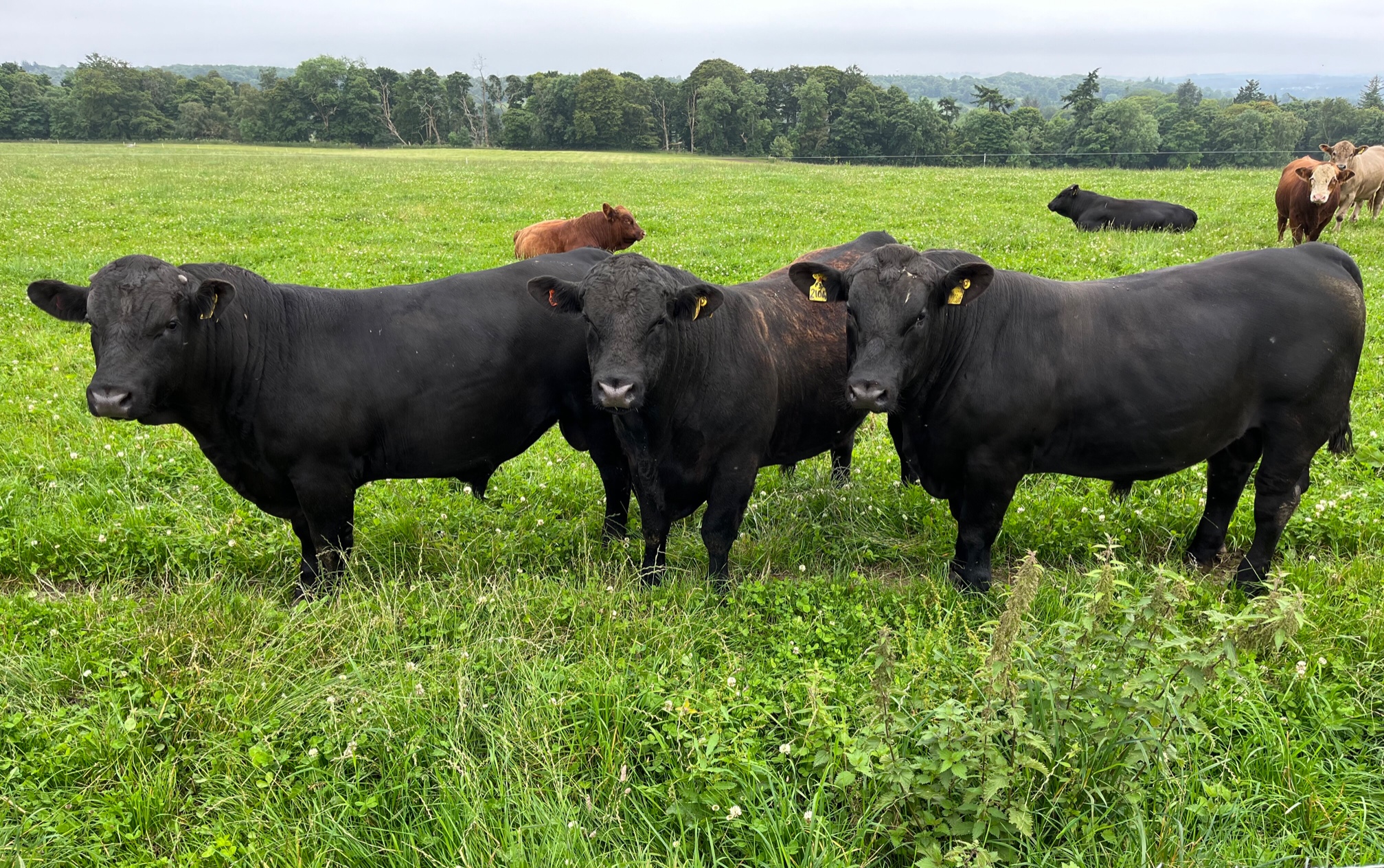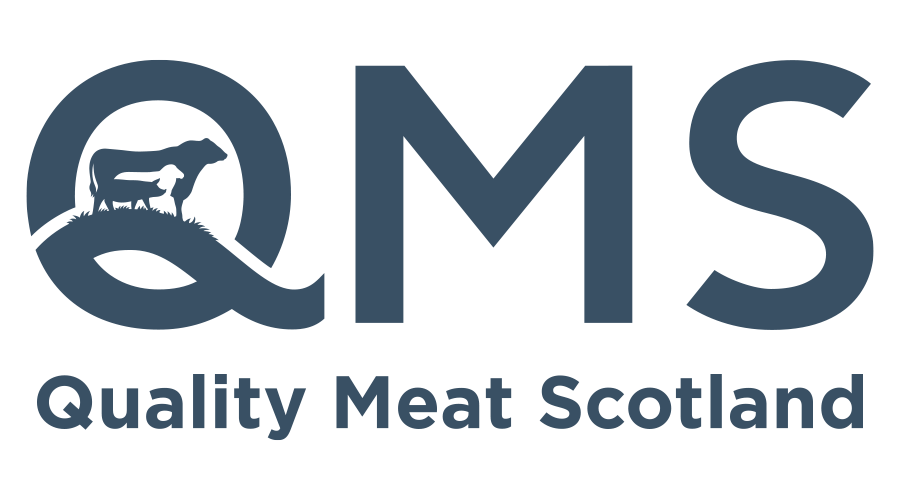Farmers from across Scotland this week came to hear how Deeside Monitor Farmers Duncan and Claire Morrison are finishing their mainly Stabiliser beef bulls at grass in a ground-breaking trial at Upper Ingliston farm near Inverurie.
Visitors at the Monitor Farm summer open meeting heard how last year’s high feed prices had made Duncan and Claire consider whether there was a more cost-effective option than intensive finishing indoors.
Duncan said: “We got the idea from our experience with our breeding bulls, which we bring to sale off grass. They do really well, and the few which don’t make breeding spec have finished at a good weight and before the 16-month deadline.”
Key to his system is rotational paddock grazing on high quality grass – analysis in May showed it had a metabolisable energy (ME) of 12.7MJ/kg DM and 27.1% protein. The swards they feed on are mainly ryegrass with red and white clover and a small amount of plantain and chicory. Bulls were split into two groups at turnout in April; those more than 350kg and those weighing less than that. They move paddocks every two days or so.
Duncan continued: “We started feeding a little concentrate in February, about 1kg/head, and have continued this in the field, using an all-terrain (ATV) and snacker. We’re just moving from feeding a roll to introducing some barley as the higher starch will help them finish.”
Average daily liveweight gain at grass has exceeded 2kg/day for most of the bulls, said Kirsten Williams, senior sheep and beef consultant with SAC. She has costed the system using fair assumptions, and while output/head may be slightly less due to potentially lower finishing weights, variable costs look set to fall from £712/head to £387/head. This gives a speculative gross margin of £466/head from finishing these bulls at grass compared with last year’s margin of £214/head finishing intensively inside; a £252/head additional return at grass.
However, both Kirsten and Duncan are keen to wait until the bulls have been finished and slaughtered before coming to a final conclusion. Kirsten cautioned that the killing out percentage may be less off grass. Kirsten said: “We have done some sensitivity analysis looking at 50% killing out versus 54%, and even so, it still leaves a better gross margin – £347/head – compared to last year’s intensive system.”
Duncan is a keen user of Farmax grazing software, using it to plan grazing rotations, as well as being able to assess different scenarios. Its use helped give confidence that they had enough quality pasture to finish bulls at grass, and so could also run steers at grass if processor requirements change in future.
He added: “I am really pleased with how this project has gone, and the weight gain so far has been very good, so I am cautiously optimistic. But I would caveat this by adding that we are not finished yet, and will need to see how they grade.” A trial update will be provided once the cattle are processed and final costs and prices are known.
Other speakers at the event included Gregor Welsh from SoilEssentials, talking about the SKAi precision spot-spraying system, which may help Duncan and Claire tackle docks while protecting mixed species swards and reducing spray costs and time. Lanarkshire farmer Michael Shannon discussed how he finishes all his cattle off grass and forage crops, plus how he markets his livestock.
Jill Hunter, beef and sheep nutritionist for Harbro, covered how finishing cattle can be managed at grass and how best to transition onto feed, and Highland Meats buyer Stuart Annand explained what he looks for in finishing cattle, and how farmers can optimise the price they receive.
Peter Beattie, Monitor Farm regional adviser, said: “It was great to see almost 100 farmers from across Scotland come to hear about Duncan and Claire’s bull beef project and its impact on costs. Our other speakers all fed into this focus on making the most of forage and the ability to make greater use of it for finishing.
“Our thanks to Duncan and Claire for opening their farm gates and all of those involved in making the event a success – including the well-received Scotch beef burgers from the local Louise’s Farm Kitchen.

